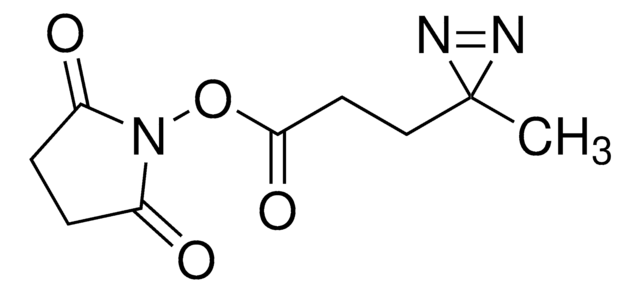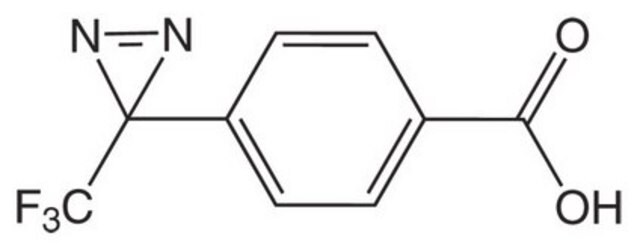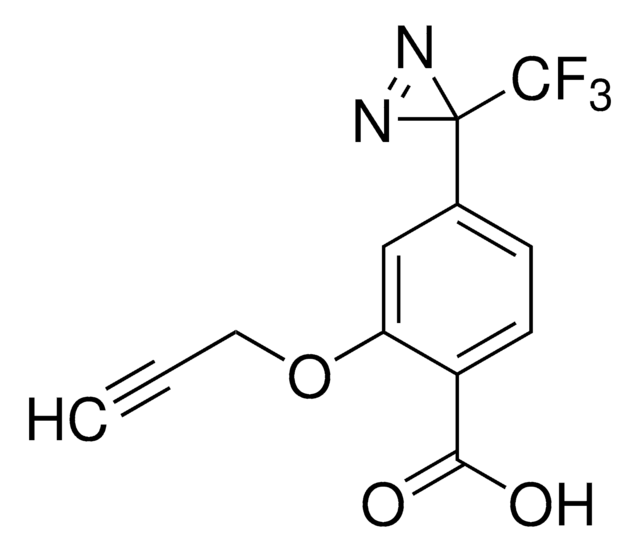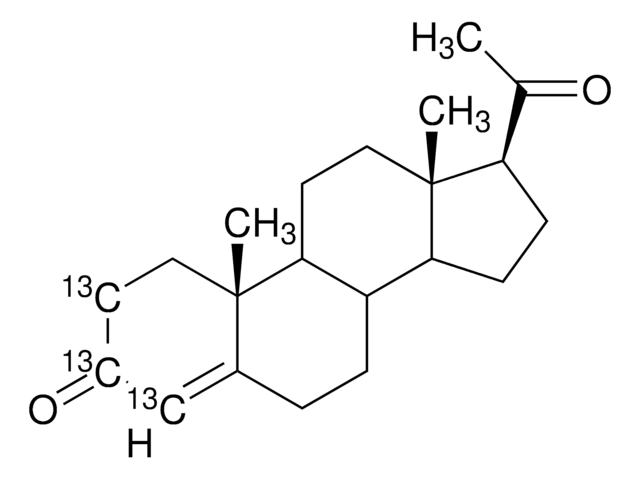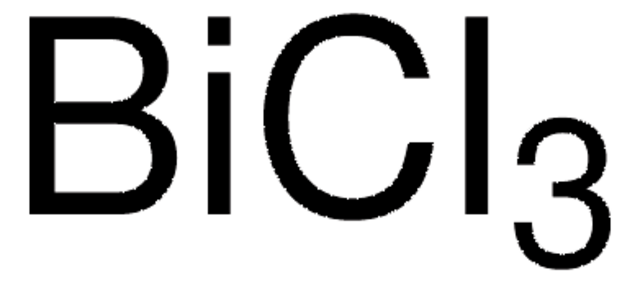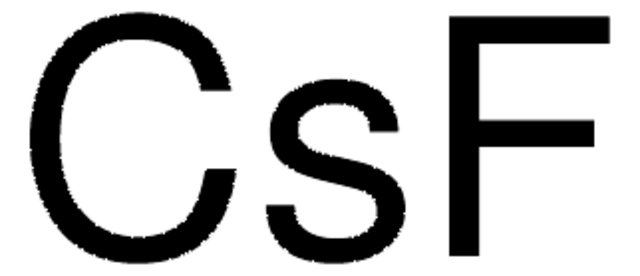906298
3-(4-Bromophenyl)-3-(trifluoromethyl)-3H-diazirine
Synonym(s):
Probe building block for photoaffinity labeling, Suzuki-Miyaura-compatible multifunctional photo probe building block, Trifluoromethyl diazirine aryl bromide
Sign Into View Organizational & Contract Pricing
All Photos(1)
About This Item
Empirical Formula (Hill Notation):
C8H4BrF3N2
CAS Number:
Molecular Weight:
265.03
UNSPSC Code:
12352101
NACRES:
NA.22
Recommended Products
Assay
≥95%
form
liquid
reaction suitability
reagent type: cross-linking reagent
storage temp.
2-8°C
SMILES string
BrC1=CC=C(C2(N=N2)C(F)(F)F)C=C1
Application
3-(4-Bromophenyl)-3-(trifluoromethyl)-3H-diazirine is a Suzuki-Miyaura (S−M)-compatible building block tailored for the design of photoaffinity probes (PAPs). Photoaffinity labeling (PAL) is of growing interest in chemical biology and drug discovery research for use in protein profiling; covalent inhibitors; protein-protein interactions and complexes; and target engagement, identification, or validation studies. Diazirines are desirable photoactivable groups for chemical probes; however, their installation is not always straightforward. In response, diazirine-tolerant S-M coupling conditions were developed by Ichiishi, et al, using 3-(4-bromophenyl)-3-(trifluoromethyl)-3H-diazirine and shown to be efficient and scalable with minimal perturbation of the diazirine.
Product can be used with our line of photoreactors: Including Penn PhD (Z744035) & SynLED 2.0 (Z744080)
Product can be used with our line of photoreactors: Including Penn PhD (Z744035) & SynLED 2.0 (Z744080)
related product
Product No.
Description
Pricing
Storage Class Code
10 - Combustible liquids
WGK
WGK 3
Flash Point(F)
Not applicable
Flash Point(C)
Not applicable
Choose from one of the most recent versions:
Certificates of Analysis (COA)
Lot/Batch Number
Sorry, we don't have COAs for this product available online at this time.
If you need assistance, please contact Customer Support.
Already Own This Product?
Find documentation for the products that you have recently purchased in the Document Library.
Naoko Ichiishi et al.
ACS medicinal chemistry letters, 10(1), 56-61 (2019-01-19)
Access to high quality photoaffinity probe molecules is often constrained by synthetic limitations related to diazirine installation. A survey of recently published photoaffinity probe syntheses identified the Suzuki-Miyaura (S-M) coupling reaction, ubiquitous in drug discovery, as being underutilized to incorporate
Formate assay in body fluids: application in methanol poisoning.
A B Makar et al.
Biochemical medicine, 13(2), 117-126 (1975-06-01)
Our team of scientists has experience in all areas of research including Life Science, Material Science, Chemical Synthesis, Chromatography, Analytical and many others.
Contact Technical Service